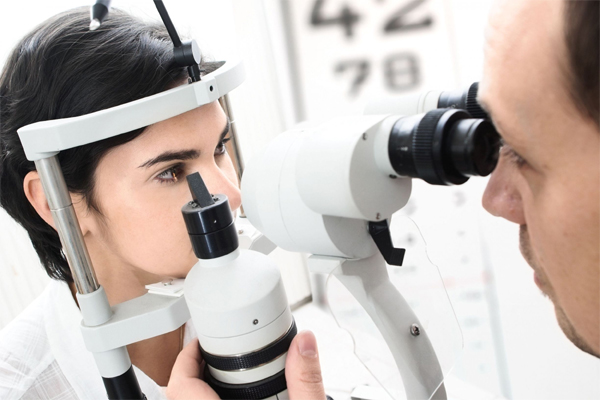



|
Tweet
Pin
It
|
Ophthalmic Optics is a science, which deals with the structure, function and working of the human eye. Popularly known as Optometry, this health care profession is concerned with examination, diagnosis and treatment of eyes, specially related to visual, optical symptoms, refractive errors and their correction, using lenses and other optical aids. The scope for optometric practice in India and abroad is great and unlimited. It is a dynamic and challenging career which could achieve personal growth, community respect and offers job flexibility, financial success and unlimited opportunities.
Optometrists or optometric physicians are primary eye care and health professionals concerned with vision care. They are experts in determining one's refractive error and prescribing appropriate correction. They deal with vision screening (eye testing), diagnosis of visual problems, orthoptics and vision training, optometric counseling of patients with partial sight, colour blindness and hereditary vision defects, and designing and fitting of spectacles, contact lens and low vision aids. They also prescribe Vision therapy eye exercises to patients complaining of Visual symptoms such as squint etc.
Though Optometry goes hand in hand with Ophthalmology in treatment of Visual disorders, Optometrists should not be confused with ophthalmologists or dispensing opticians. An optometrist performs all the tasks of an ophthalmologist, short of surgery. Ophthalmologists (Eye M.D's) are trained physicians specialized in eye and vision care who perform eye surgery, as well as diagnose and treat eye diseases and injuries.
Students who wish to do degree or diploma courses in Ophthalmic technology should clear 10+2 or equivalent examination, with a minimum of 50% marks in physics, chemistry and biology.
To practice as a optometrist it is essential to have a Bachelor's degree in Optometry (Bachelor of Clinical Optometry) (B.Optom). Eligibility for B.Optom course is Higher Secondary Examination (10+2 course) or it's equivalent with minimum 50% marks in Physics, Chemistry and Biology or Mathematics and English, from a recognised board and the age limit is 17 years as on 31st December. Candidates satisfying the eligibility requirement for the B.Optom course have to appear for the EYECET examination. The EYECET exam is the centralised, combined, entrance test for entry into optometry courses, which is universally recognised all over the country.
B.Optom course is of 4 year duration. The first 3 years teaching is followed by one year of internship for clinical and trade experience. The optometry course covers a wide variety of subjects, including physical optics, knowledge of optical instruments, general anatomy, physiology, abnormal and pathological conditions of the eye and the methods to measure refractive errors and their correction. Courses in pharmacology, optics, vision science, biochemistry, and systemic disease are included in the curriculum. There will be practical training in Basic Science, Dispensing Optics and Clinical subjects. The forth and final year is internship where the students are posted at various hospitals and specialty eye clinics and Optical establishments for clinical training and hands-on practice.
For direct admission to third year B.Optom course, candidates who have completed their 10+2, must have a 2 year diploma course in Optometry, Ophthalmic Techniques, Refraction, Orthoptics and Ophthalmic Assistance with 40% marks from an Institute recognised by Indian Optometric Association and Bharati Vidyapeeth Deemed University. Candidates with Secondary School Certificate (std X) must have a 3 year diploma course in Ophthalmic Techniques and should have worked in an Ophthalmic clinic or Optical establishment for a minimum period of one year after completion of the course. The candidates, have to submit their work experience certificate from the Ophthalmic clinic or Optical establishment during the time of admission. Age limit for direct admission to 3rd year B.Optom course is 19 years. In addition, they have to appear for the EYECET test.
Personal Skills :
Patience, manual dexterity and a confident manner are important skills
for the work of an optometrist. The essential characteristics to
become a licensed optometrist are mechanical aptitude, good vision and
coordination. Self-discipline, a disposition to serve others, work ethics
characterized by dedication and persistence and the ability to deal tactfully
with patients are some essential qualities to become a successful optometrist.
Tags
paramedical career
,
healthcare career
Find it Useful ? Help Others by Sharing Online
Comments and Discussions |
Related
Career Options
|
|||
|
|